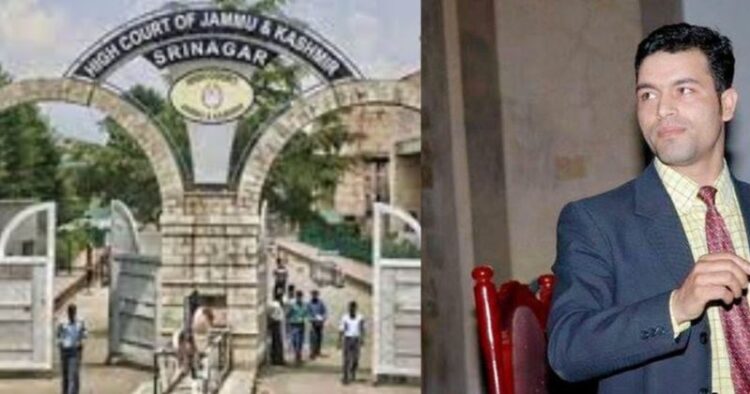The Jammu and Kashmir High Court has upheld the rejection of nomination papers of Abdul Bari Naik by Returning Officer (RO) Fakhrudin Hamid of Anantnag-Rajouri Lok Sabha segment. Naik had approached the court and filed a petition under Article 226 of the Constitution. He had contended that he wanted to participate in parliamentary elections now underway as a candidate. However, his nomination papers were unduly rejected by the RO of the Anantnag-Rajouri Lok Sabha seat, he had claimed.
Incidentally, the nomination papers of three other candidates were also rejected by the same RO during scrutiny due to deficiencies he had found out. They had all accepted the finality of RO’s ruling but Naik had preferred to challenge the decision. During scrutiny of nomination papers, the RO found Naik’s papers were incomplete as they were not accompanied by a mandatory certificate from the Election Commission of India (ECI) needed in the instant case. This certificate had not been appended with the documents that had been submitted along with Naik’s nomination papers.
The court has now ruled that the “returning officer can reject the acceptance of a nomination form of any person dismissed from service if it’s not accompanied by a certificate issued by the Election Commission of India (ECI)’’. During scrutiny, the RO found that Naik, who holds a Ph D, had been dismissed from service as a teacher three years ago under Section 311 (2) of the Constitution of India. This section is invoked by the authorities when an employee needs to be summarily dismissed for his/her involvement in unwanted activities. These unwanted activities can be large scale corruption, anti-national activities like fostering separatism and secessionism, etc. In such cases, the summary dismissal is based on recommendations from intelligence agencies, mainly CID wing of J&K police.
In such cases, the set of nomination papers of a candidate wanting to contest an election should include a clearance from the ECI. The case was heard by Justice Sindhu Sharma, who ruled that Abdul Bari Naik’s candidature has been rejected on valid grounds. She upheld the RO’s decision and said that this was not a fit case for intervention by the court.
Justice Sharma observed that Naik wasn’t a “duly nominated person under the Representation of People Act (RPA), 1951, as the ECI rejected his request for issuance of a clearance certificate. Naik was dismissed from service under Article 311(2) of the Constitution of India.
Naiks counsel had argued that despite completing all the requisite formalities, the nomination papers of his client were not accepted by the RO. At one time, Naik was an assistant professor, who was terminated from service in 2021. On this basis, the ECI had turned down his request for a clearance certificate. Naik’s petition filed under Article 226 wasn’t maintainable, the court said. Without a valid certificate as mandated under section 9(2) of the RPA Act, Naik wasn’t a duly nominated person, and thus, his nomination paper couldn’t be accepted.
Some years ago, the nomination papers of two women were rejected in Kashmir on the ground that they were Pakistanis, and not Indian citizens. These women wanted to contest panchayat elections of the communities they were living in. During scrutiny, it was found that these women had come to India via Nepal border after getting married to Kashmiri men who had crossed over to Pakistan decades ago. The Kashmiri men had participated in anti-Bharat activities, some had even served long prison terms. The number of such women, and their children, without Indian citizenship runs into a few hundred in Kashmir.




















Comments